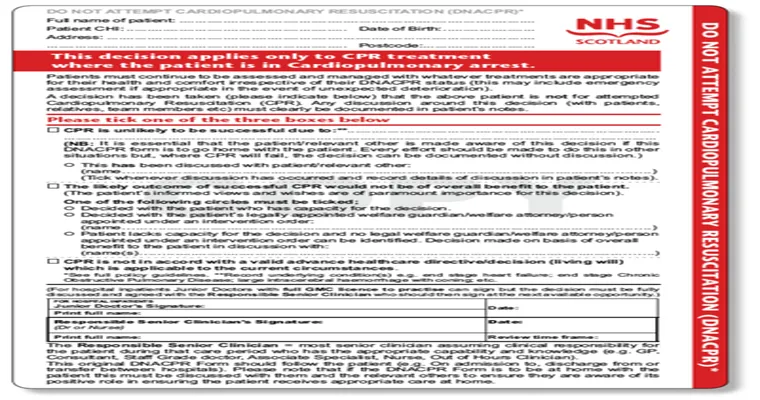The "Do Not Resuscitate (DNR)" order has become a controversial topic in modern medicine, particularly when it comes to the care of "elderly patients". Many argue that such orders can be seen as an "excuse to kill old people", raising ethical questions about the value placed on human life and the rights of individuals to make choices about their own medical treatment. This article aims to explore the implications of DNR orders, the potential for misuse, and the necessity of preserving "human rights" in the healthcare system.
At its core, a DNR order is a medical directive that instructs healthcare providers not to perform cardiopulmonary resuscitation (CPR) if a patient stops breathing or their heart stops beating. While this decision may be appropriate for some patients, especially those with terminal illnesses or severe health conditions, it raises significant concerns when applied to "older adults". Critics argue that DNR orders can sometimes be imposed without adequate discussion or consent, effectively removing the agency of elderly patients over their own medical care.
One of the primary issues surrounding DNR orders is the potential for "ageism" in healthcare. Far too often, "older adults" are perceived as less valuable or less deserving of aggressive medical intervention simply due to their age. This mindset can lead to premature decisions about life-sustaining treatment, as healthcare providers may unconsciously prioritize the wishes of family members or the perceived quality of life over the desires of the patients themselves. In this light, the DNR order can be seen as a method of sidelining the elderly, stripping them of their "human rights" and autonomy in the process.
Moreover, the ethical implications of DNR orders become even more pronounced when considering the broader context of healthcare resources. During times of crisis, such as a pandemic or a major healthcare shortage, the question arises: should the lives of "elderly individuals" be prioritized over younger patients? While resource allocation is a complex issue, the risk of devaluing older lives in favor of younger ones remains a troubling concern. The imposition of DNR orders can contribute to a narrative that older adults are expendable, leading to a chilling effect on the "human rights" of an entire demographic.
It is essential for healthcare providers to engage in open and honest conversations with patients and their families regarding DNR orders. Informed consent should always be prioritized, ensuring that patients fully understand the implications of their choices. This includes discussing the potential for recovery, quality of life, and the values that inform their decisions about medical interventions. Patients have the right to refuse treatment, but they also have the right to be empowered in their choices, especially when it concerns their own lives.
In conclusion, while DNR orders can serve a valid purpose in certain medical contexts, it is crucial to approach this practice with caution and sensitivity, particularly when it involves "elderly patients". The risk of treating DNR as an "excuse to kill old people" must be acknowledged and actively countered through education, advocacy, and a commitment to preserving the "human rights" of all individuals. Only by fostering a culture of respect and dignity in healthcare can we ensure that elderly patients are treated with the care and consideration they deserve.





